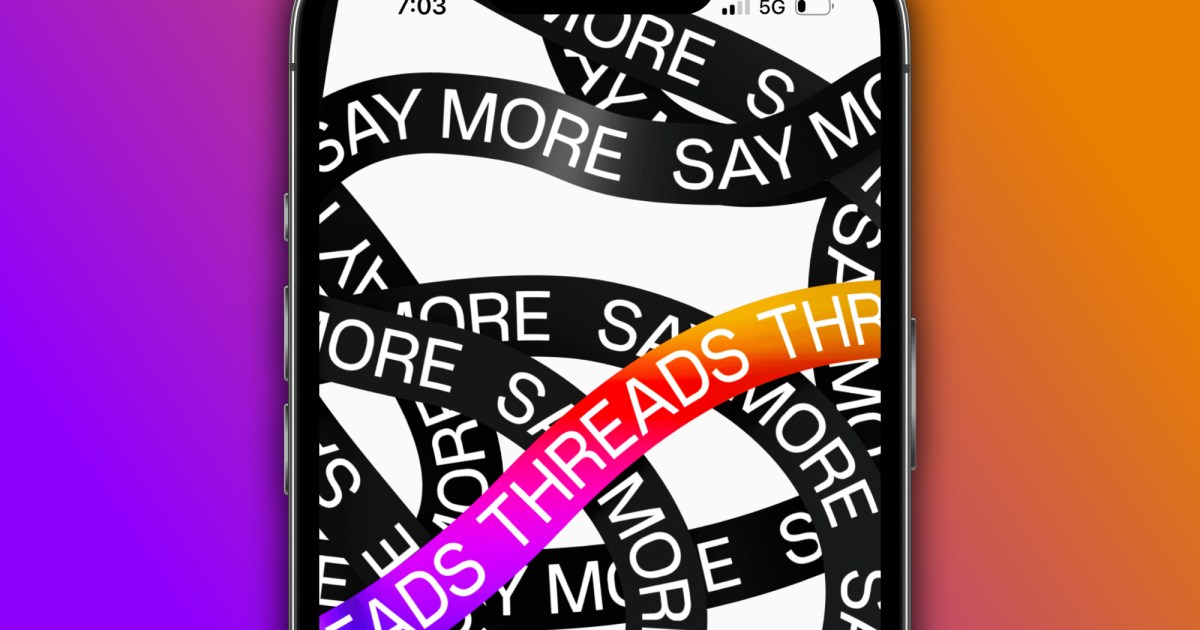
Greta Gerwig’s Barbie movie has been dominating the globe with a sprawling and spectacular marketing campaign that is impossible to ignore. Now that the film is finally coming to theaters, can it possibly live up to the hype of anticipation? It’s complicated.
In some regards, Barbie is exactly what fans online frothing over the Barbie Selfie Generator and those true-to-doll red carpet looks desire. Gerwig – with the assistance of an army of incredible craftspeople – has made Barbieland a marvelous reality of towering dreamhouses, flawless fashion, and violently pink everything. Margot Robbie and Ryan Gosling are masterfully paired as “Stereotypical Barbie and Ken,” not only achieving the improbable physical perfection of this iconic duo but also capturing the juvenile whimsy one might assume they possess.
Plus, there’s plenty of daffy humor tied to how kids play with Barbie and some of Mattel’s less glamorous moments. But the plot carefully hidden in the trailers, clips, junket videos, and music videos may throw many for a loop. And that’s pretty incredible in its own right.
Is going to a movie during the WGA/SAG-AFTRA strike crossing the picket line?
What is Barbie about?

Credit: Warner Bros.
The opening of the film, written by Gerwig and Noah Baumbach, is the hilarious teaser, which parodied 2001: A Space Odyssey. Little girls in sepia-toned desert play dispassionately with baby dolls until Barbie arises like a majestic monolith in her debut swimsuit, and the kids go “ape” for her. A brief intro proposes that Barbie has been an icon, inspiring girls and solving all the problems of sexism — well, as far as the residents of Barbieland, a female-led utopia, know, anyway.
In Barbieland, Barbies are doctors, lawyers, construction workers, Pulitzer prize winners, and the president. Every day is perfect, beginning with a great night’s sleep and a charming morning routine of costume change and heart-shaped waffle and every night ends with a massive dance party, followed by a “girls’ night”— no Kens allowed. (While Barbies do anything and everything, Kens “beach.”) But all of this seeming perfection begins to unravel when Stereotypical Barbie (Robbie) asks abruptly, mid-choreographed group-dance number, “Do you guys ever think of dying?”
Soon, her sleep isn’t so restful. Her breakfast is burnt. Her perfectly arched feet go flat. She seeks counsel from “Weird Barbie” (a perfectly cast Kate McKinnon), who tells her that the girl playing with her in the Real World is in crisis, and it’s up to Barbie to go there and help her. Ken (Gosling) will come along for the ride, whether Barbie likes it or not.
Barbie is a miracle for a studio movie.

Credit: Warner Bros.
Barbie has long been a promise and a pitfall for women. On one hand, she tells girls they can be anything they dream of. On the other hand, she is a standard to which we can never live up to with her unrealistic curves, her unflappable smile, her entirely bespoke wardrobe, and her ability to be absolutely anything — with no impediments of institutionalized prejudice to hold her back.
Incredibly, Barbie tackles a lot of this terrain. Barbieland is an inclusive place, made up of Barbies who are people of color, disabled Barbies with aids like wheelchairs and prosthetic limbs, Barbies of different body types, and a Doctor Barbie played by trans actor/model Hari Nef. It’s a dizzying delight to see all of these women working blissfully together, living our best fantasy lives, where their basic rights aren’t under attack (and everything looks cute).
When Barbie visits the Real World; however, she confronts a rude awakening of catcalls, sexual harassment, and a Mattel boardroom full of businessmen talking down to her. From here, the film becomes direct in its discussion of sexism and the problems of patriarchy. The dialogue on these points ranges from comically broad to personal but generally has a “Feminism 101” vibe to it. While some might be outraged at even this level of discourse on gender politics in a kid-friendly movie, others will likely criticize that Gerwig doesn’t go far enough here. However, it seems Gerwig’s chief focus with Barbie is to give voice to the girls and young women encountering the sexist double standards put upon them by using a doll that’s been a blessing and a curse on that point. It’s a candy-coated intro to feminism.
To one character, Barbie is a symbol of outdated and unfair standards women are shackled by; to another, she’s a radiant symbol of the potential women possess, if only given the chance to shine. This conflict not only propels the plot — and Barbie’s own identity crisis — but also allows for another political paradox in this big-budget studio movie with glossy IP.
It’s easy to be cynical about movies based on toys, as one might rightly assume they’re chiefly produced for merchandising. It’s hard to argue Barbie doesn’t play into that, as Barbie-mania sweeps the globe with a massive array of tie-in products. Even within the movie, specific clothes and dolls get loving, kitschy close-ups. But incredibly, within what is a two-hour commercial for Barbie dolls and all hyper-feminine fashion accessories, Gerwig builds a thread about the evils of consumerism and the problems with Barbie. A politically minded tween (Ariana Greenblatt) goes on a diatribe about the problems with the doll, giving swift voice to many of Barbie’s detractors. But more powerfully, the third act challenges the concept that our identities are made of what we own. Even in Barbieland, consumerism and the obsession with stuff is called into question, which feels pretty radical for a toy movie.
Barbie has inspirations classic and comical; Margot Robbie and Ryan Gosling are perfect.

Credit: Warner Bros.
On the press tour, Gerwig has repeatedly noted she found inspiration in classic Hollywood musicals. And that is clear in Barbieland with its gorgeous hand-painted backdrops, the 2001 parody, the pink brick road (a nod to The Wizard of Oz), and a flashy dance number that recalls Gene Kelly’s dream ballet in An American in Paris. Cinephiles have plenty of reasons to geek out over these details. Yet the tone of Barbie is distinctly modern, favoring a high-energy satire approach that recalls Deborah Kaplan and Harry Elfont’s cult classic Josie and the Pussycats, which also condemned consumerism in pop culture, and the recent comedy gem, Josh Greenbaum’s Barb and Star Go to Vista Del Mar(opens in a new tab), which also centers on a charming twosome who love sand and sun.
Simply put, Barbie is meticulously crafted, politically daring (for a studio movie), and absolutely hilarious. But the film may not have worked were it not for Robbie and Gosling, who completely understand and embrace Gerwig’s mix of classic and contemporary. Sure, Robbie looks the part of Barbie, on the screen and on the red carpet. However, there’s more to the character than the initial breeziness seen in much of the trailers. As existential dread creeps in, Barbie battles with the social pressure to look endlessly happy, even as her mind is rattled with self-doubt and anxiety. Robbie has to traverse the tricky terrain of making a doll’s existential crisis have stakes, and she does so with tender tears and a smile that shines yet quivers.

Credit: Warner Bros.
Gerwig’s sensational soundtrack gives voice to these feelings as Barbie struggles to find the words. Tracks from Dua Lipa, Billie Eilish, and Lizzo provide poignant and playful commentary, while Ken breaks out into song a couple of times too. Once, he goes into a full musical number with all the Kens in the hilariously indulgent, “I’m Just Ken.” The other time…it’s too good to spoil. It involves a guitar and is the hardest I laughed at this very funny movie. And that’s credit to Gosling.
There are a lot of terrific performances in Barbie, from Will Ferrell as a reliable spoof of an arrogant man in charge, Issa Rae as no-nonsense President Barbie, America Ferrera as Barbie’s passionate human ally, and Michael Cera as the slyly hysterical Allan. However, Gosling is superb. He’s brought plenty of Kenergy to the press tour for this movie. But in Barbie he does so much more. He allows himself to be the clown in a way we haven’t seen since The Nice Guys. He’s unafraid to be absurd, like Jamie Dornan in Barb and Star. And in doing so he becomes the perfect match for Robbie’s radiant yet unraveling Barbie.
In the end, Gerwig has done something ambitious and remarkable. She took what could have been a cheap excuse to sell toys and has made it an accessible political conversation about gender politics, consumerism, and the radical act of self-love. Her incredible crew has built a dream world that looks so real and tangible, you can imagine strutting onto its pink plastic floors and opening its various glossy doors. Her cast has embraced her vision, throwing themselves into the physical comedy, the ardent pathos, and the movie’s most bonkers moments with such abandon that it’s absolutely intoxicating. The result is a summer movie that has more depth than you might expect, and demands to be seen on the big screen to take in every ounce of all the incredible craftsmanship in front of and behind the camera.
In short, Barbie is a marvel. Don’t miss it.
Barbie opens in theaters July 21.(opens in a new tab)






